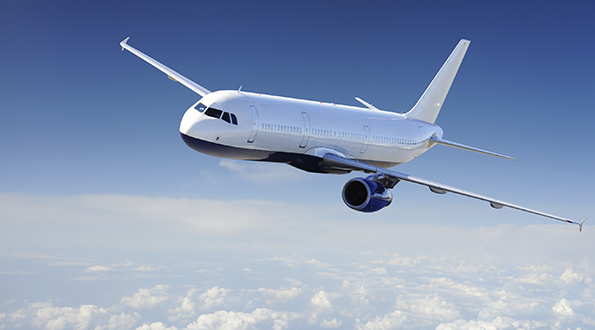
Nov 2021 – Updated CDC Guidelines For Domestic Travel Related to Covid-19
GoMed Mobile Urgent Care is available 7 days a week to assist with your travel related Antigen and PCR Covid Testing. With Thanksgiving and Christmas right around the corner, GoMed wanted all of our patients to have the latest CDC guidelines at their disposal as you consider traveling for the holidays. The link to the CDC website is available at the end of this article.
As per the Centers for Disease Control and Prevention, the following guidelines were updated as of November 8, 2021.
International Travelers Coming To The US
The White House announced that vaccines will be required for international travelers coming into the United States, with an effective date of November 8, 2021. For purposes of entry into the United States, vaccines accepted will include FDA approved or authorized and WHO Emergency Use Listing vaccines.
Domestic Travel During COVID-19
Information for People Traveling within the United States and U.S. Territories
- Delay travel until you are fully vaccinated.
- Check your destination’s COVID-19 situation before traveling. State, local, and territorial governments may have travel restrictions in place.
- Wearing a mask over your nose and mouth is required in indoor areas of public transportation (including airplanes) and indoors in U.S. transportation hubs (including airports).
- Do not travel if you have been exposed to COVID-19, you are sick, or if you test positive for COVID-19.
- If you are not fully vaccinated and must travel, get tested both before and after your trip.
Delay travel until you are fully vaccinated. If you are not fully vaccinated there are additional recommendations to follow before, during, and after travel.
Before You Travel
Make sure to plan ahead:
- Check the current COVID-19 situation at your destination.
- Make sure you understand and follow all state, local, and territorial travel restrictions, including mask wearing, proof of vaccination, testing, or quarantine requirements.
- For up-to-date information and travel guidance, check the state or territorial and local health department’s website where you are, along your route, and where you are going.
- If traveling by air, check if your airline requires any testing, vaccination, or other documents.
- Prepare to be flexible during your trip as restrictions and policies may change during your travel.
Testing
RECOMMENDED
If you are NOT fully vaccinated, get tested with a viral test 1-3 days before your trip.
Do NOT travel if…
- You have been exposed to COVID-19 unless you are fully vaccinated or recovered from COVID-19 in the past 90 days.
- You are sick.
- You tested positive for COVID-19 and haven’t ended isolation (even if you are fully vaccinated).
- You are waiting for results of a COVID-19 test. If your test comes back positive while you are at your destination, you will need to isolate and postpone your return until it’s safe for you to end isolation. Your travel companions may need to self-quarantine.
During Travel
Masks – REQUIRED
Wearing a mask over your nose and mouth is required in indoor areas of public transportation (including on planes, buses, trains, and other forms of public transportation traveling into, within, or out of the United States and while indoors at U.S. transportation hubs such as airports and stations. Travelers are not required to wear a mask in outdoor areas of a conveyance (like on open deck areas of a ferry or the uncovered top deck of a bus).
Protect Yourself and Others
RECOMMENDED
- Follow all state and local health recommendations and requirements at your destination, including wearing a mask and staying 6 feet (2 meters) apart from others.
- Travelers 2 years of age or older should wear masks in indoor public places if they are:
- not fully vaccinated
- fully vaccinated and in an area with substantial or high COVID-19 transmission
- fully vaccinated and with weakened immune systems
- In areas with high numbers of COVID-19 cases, consider wearing a mask in crowded outdoor settings and for activities with close contact with others who are not fully vaccinated like an outdoor festival or sporting event.
- Wash your hands often or use hand sanitizer (with at least 60% alcohol).
After Travel
You might have been exposed to COVID-19 on your travels. You might feel well and not have any symptoms, but you can still be infected and spread the virus to others. People who are not fully vaccinated are more likely to get COVID-19 and spread it to others. For this reason, CDC recommends taking the following precautions after returning from travel.
ALL Travelers
RECOMMENDED
Self-monitor for COVID-19 symptoms; isolate and get tested if you develop symptoms.
Follow all state and local recommendations or requirements after travel.
-
- Follow all state and local recommendations or requirements.
- Visit your state, territorial, tribal, and local/external icon health department’s website to look for the latest information on where to get tested.
https://www.cdc.gov/coronavirus/2019-ncov/travelers/international-travel-during-covid19.html
If you are NOT fully vaccinated
RECOMMENDED
Self-quarantine and get tested after travel:
- Get tested with a viral test 3-5 days after returning from travel.
- Stay home and self-quarantine for a full 7 days after travel, even if you test negative at 3-5 days.
- If you don’t get tested, stay home and self-quarantine for 10 days after travel.
If Your Test is Positive
Isolate yourself to protect others from getting infected. Learn what to do and when it is safe to be around others.
If You Recently Recovered from COVID-19
You do NOT need to get tested or self-quarantine if you recovered from COVID-19 in the past 90 days. You should still follow all other travel recommendations. If you develop COVID-19 symptoms after travel, isolate and consult with a healthcare provider for testing recommendations.
Reference CDC: https://www.cdc.gov/coronavirus/2019-ncov/travelers/travel-during-covid19.html
